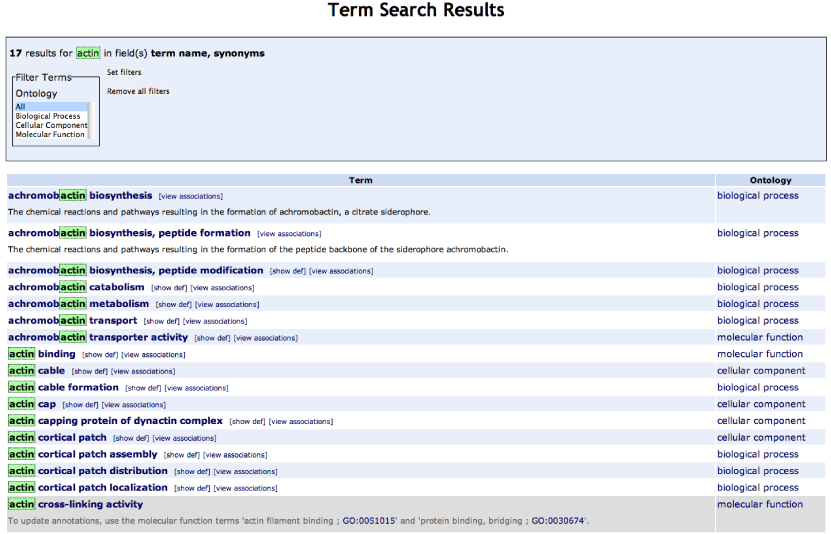AmiGO help Term Search Results
Term Search Results Page
When you search for GO terms (the default), you will be presented with a list of hits that match the query. Screen shot of the results page for the query term 'actin' is shown below.
There are two sections on the results page. In the top section the number of results and a filtering option are provided. In this case there are 17 results that match the term 'actin' either in the term name or the synonym fields and the query 'actin' is highlighted in green. The filtering option allows to filter the results further by an ontology. In the bottom section of the page, there is a table of results that lists the term names that match the query, options to view the definition and the annotations '[show def] [view associations]' for that term and the ontology where the term is represented.
Clicking on a term name brings you to the Term Details Page for that term. The term details page provides information on the term name which includes its definition, synonyms, term tree view and all annotations associated with the term. Clicking on the '[show def]' link displays the definition of that term right below the term name on the search results page itself. Clicking on the [view associations] link will display all the gene product associations or annotations to that term. In the same list, the last term 'actin cross-linking activity' is displayed against a grey background to highlight the fact it is an Obsolete term. The [show def] and [view associations] options are not available for obsolete terms. Clicking on the obsolete term will take you to the Term details page which will provide more details on the obsolete term. Clicking on the name of the ontology (molecular function or cellular component or biological process) takes you to the documentation at the GO website on the scope and definition of these ontologies.
